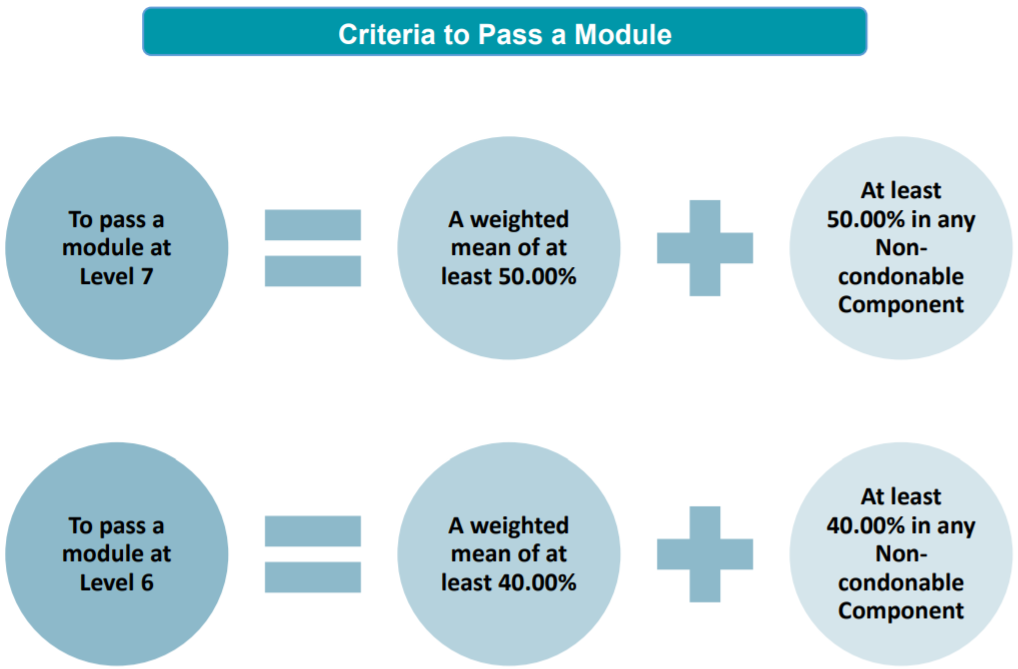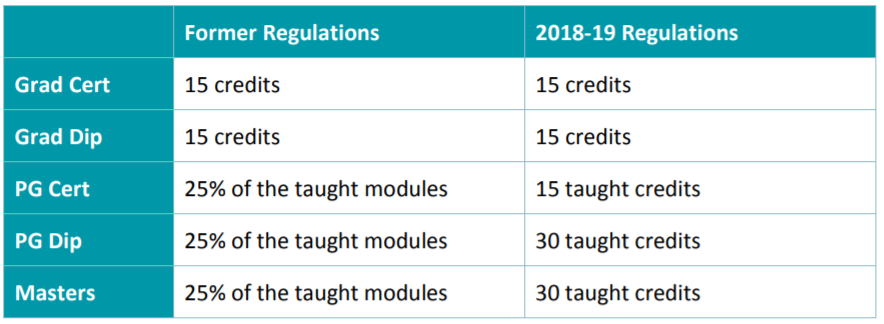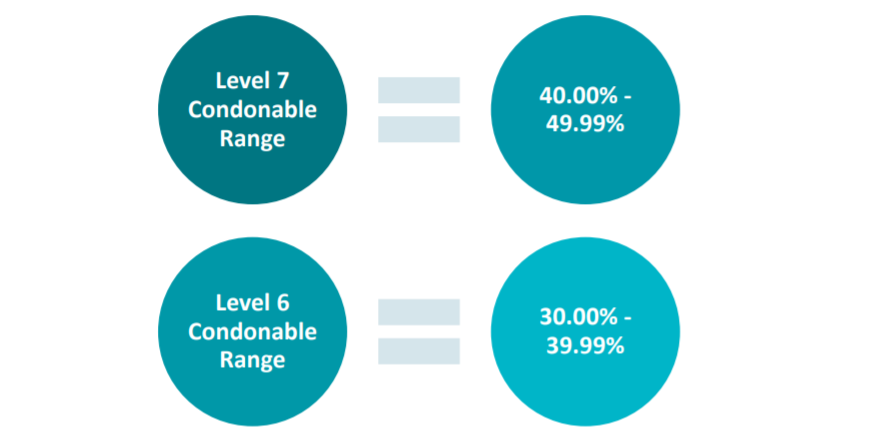For assessibility purposes, the following page is also available as a PDF via:
For 2018-19 there are changes to the Module Assessment, Progression and Award, and Classification regulations for Graduate and Taught Postgraduate programmes.
For the IOE, please refer to the Institute of Education Graduate and Taught Postgraduate Regulation Changes 2018-19.
This is a summary of the main changes. Please also take some time to read and digest the regulations themselves.
Size of the Masters Dissertation/ Substantive Project
In response to the needs of some professional disciplines, Taught Masters programmes now need to include an “in-depth research or scholarly activity of at least 30 credits in the form of a Dissertation or other Substantive Project”. Research Masters (MRes) programmes are unchanged - programmes should include a Dissertation/ Substantive Project of 105-150 credits (pro-rata for extended programmes). Some programmes have been granted approval by the Chair of the Research Degrees Committee to operate with a smaller Dissertation/ Substantive Project, or with a combination of modules counting as the Dissertation/ Substantive Project, and these arrangements will continue.
Taught Masters Classification
In response to feedback from UCL students and staff, and to a high number of requests for Suspensions of Regulations, the Taught Masters classification has changed:
- Merits and Distinctions will now be determined from the final weighted mean only; there is no longer a separate Dissertation/ Substantive Project criterion in the main Classification Criteria and in the Borderline Criteria.
To counter-balance this change, two further amendments have been made:
- All credits will now count towards the classification, including on programmes with more than the standard number of credits
- When looking at Borderlines, the ‘50%’ rule applies to all credits instead of just the taught credits.
This means that a Distinction will now be calculated as follows:

The same principles apply to the Merit boundary (marks of 59.50% will be rounded up automatically, etc.)
The changes apply to all new and continuing Taught Masters students who are fully enrolled on the 2018- 19 academic session, with the following exceptions:
- The MRes will continue to include separate Dissertation/ Substantive Project criteria.
- For Master of Laws (LLM) students the new regulations apply to new students only. The former derogation will be phased out for continuing students - details are available from the Faculty of Laws.
- For Repeating Masters students, the Classification will be based on both the weighted mean and the mark in the Dissertation/ Substantive Project, in line with the 2017-18 regulations. In all other respects, students who are undertaking a Repeat will be fully enrolled on the 2018-19 academic session and therefore subject to the 2018-19 regulations.
More information: Chapter 4, Section 10: Classification
Criteria to Pass a Module
The way in which component marks are combined to create the module mark has been standardised. The changes apply to all new and continuing students who are fully enrolled on the 2018-19 academic session.
For programmes operating the numeric marking system, the following formulae will be used:

The module mark is normally determined from just the weighted mean of all components. This means that a student could receive a mark of 0.00% in one component and still pass the module if they do well in the other components.
However, if a component is essential to professional accreditation or essential to achieving a degree in a particular field of study, it may be designated as ‘Non-Condonable’ for a particular programme. It is only possible to have a Non-Condonable Component within a Non-Condonable Module. Students must pass all Non-Condonable Components. If a student fails a Non-Condonable Component, they will be reassessed in the module.
More information: Chapter 4, Section 3: Module Assessment
Condoned Modules
The Condonement regulations for Graduate and Taught Postgraduate programmes have been standardised.
The main change is in the amount of credit which is condonable. This will now be the same for all programmes of the same type, rather than being based on a percentage:

On programmes with more than the standard number of credits (e.g. Masters with >180 credits), the Department has the option of increasing the amount of Condonable Credit to a fixed number up to a maximum of 25% of the taught credits, subject to approval by UCL. This will be explained in the individual Programme Summary.
Condonable Range
In order to ensure that there is no ambiguity about the rounding of condonable marks, the Condonable Range will now be expressed to 2 decimal places:

More information: Chapter 4, Section 9: Progression and Award
Applying Condonement
The way in which Condonement is applied has been standardised across UCL. This includes the following principles:
- If a student meets all of the Condonement Criteria, they will be condoned and will not be reassessed.
- If a student does not meet all of the Condonement Criteria, including failing more than the maximum number of Condonable Credits, they will be reassessed in all of the failed modules, including those in the Condonable Range.
- On Flexible and Part Time programmes, Condonement can only be determined at the end of the taught modules. Until then students will be reassessed in all failed modules including those in the Condonable Range.
- If a student submits a valid claim for Extenuating Circumstances they will normally be offered a Deferral before Condonement is considered.
- Modules are normally ‘Condonable’. If a module is essential to professional accreditation or essential to achieving a degree in a particular field of study, it may be designated as ‘Non-Condonable’ for a particular programme.
- All Optional and Elective Modules are Condonable unless they are essential to professional accreditation.
- All Masters Dissertations/ Substantive Projects are Non-Condonable.
- Condonement is determined by the student’s parent Programme, not on a module-by-module basis.
- Condonement does not apply on programmes which are assessed on a Pass/ Fail basis. This includes Initial Teacher Education programmes and some clinical programmes – this will be explained in the individual Programme Summary.
- Condonement does not apply on non-modular programmes such as those in the Slade School of Fine Art.
- The regulations apply to all other new and continuing students who are fully enrolled on the 2018-19 academic session.
- These changes are in addition to those introduced in 2017-18: If a student meets the Condonement Criteria, they will be condoned and will not be reassessed. However students are eligible for a Merit or Distinction Classification if they have a condoned mark in their profile.
More information: Chapter 4, Section 9: Progression and Award
Academic Levels
From 2018-19, UCL will integrate fully with the UK Framework for Higher Education Qualifications. As our Graduate and PGT programmes already use this system, there is little change at this level. The principal difference is the naming of the different academic levels:

The status of Graduate programmes has also been clarified throughout the regulations. The term ‘Graduate’ refers to level 6 Graduate Certificates and Graduate Diplomas which are commensurate with the final stages of a Bachelors degree. ‘Taught Postgraduate’ refers to level 7 programmes such as Masters Degrees, Postgraduate Diplomas and Postgraduate Certificates.
More information: Chapter 2: Qualifications and Credit Framework
Standardised Calculations
The new regulations include a standardised approach to the formulae used to combine marks so that all students across UCL are treated equally. This includes: Averaging, Rounding, Decimal places, Marking scales, Pass marks, Reporting of component marks, Calculation of module marks, Calculation of award, Calculation of classifications, and Borderline criteria.
More information: Chapter 4: Assessment Framework for Taught Programmes
When do the regulations apply?
For the majority of Graduate and Taught Postgraduate students, the new regulations apply as soon as the 2018-19 academic session begins.
There are a few students who will still be subject to the 2017-18 regulations:
Repeating Students
Students who are Repeating modules from the 2017-18 academic session will be ‘fully enrolled’ on the 2018-19 academic session and therefore subject to the 2018-19 regulations with the following exception:
- The Classification will be based on both the weighted mean and the mark in the Dissertation/ Substantive Project, in line with the 2017-18 regulations.
Deferring Students
Students who are Deferring with Tuition will be ‘fully enrolled’ on the 2018-19 academic session and therefore subject to the 2018-19 regulations.
Students Returning from Interruption
Students who are returning from an Interruption and enrolling on the 2018-19 academic session should be subject to the 2018-19 regulations. However if the student completed all of the teaching before the Interruption and is only returning to be assessed, the 2017-18 for Module Assessment, Award and Classification regulations will apply.
Master of Laws (LLM) Students
For Master of Laws (LLM) students the new regulations apply to new students only. The former derogation will be phased out for continuing students - details are available from the Faculty of Laws.
Contact: academicregulations@ucl.ac.uk
 Close
Close

